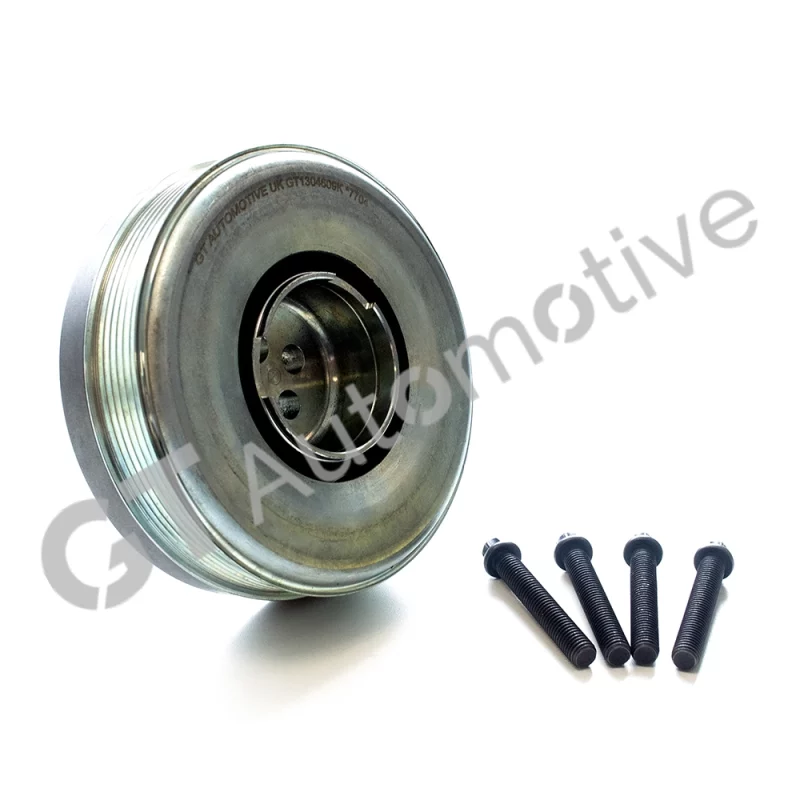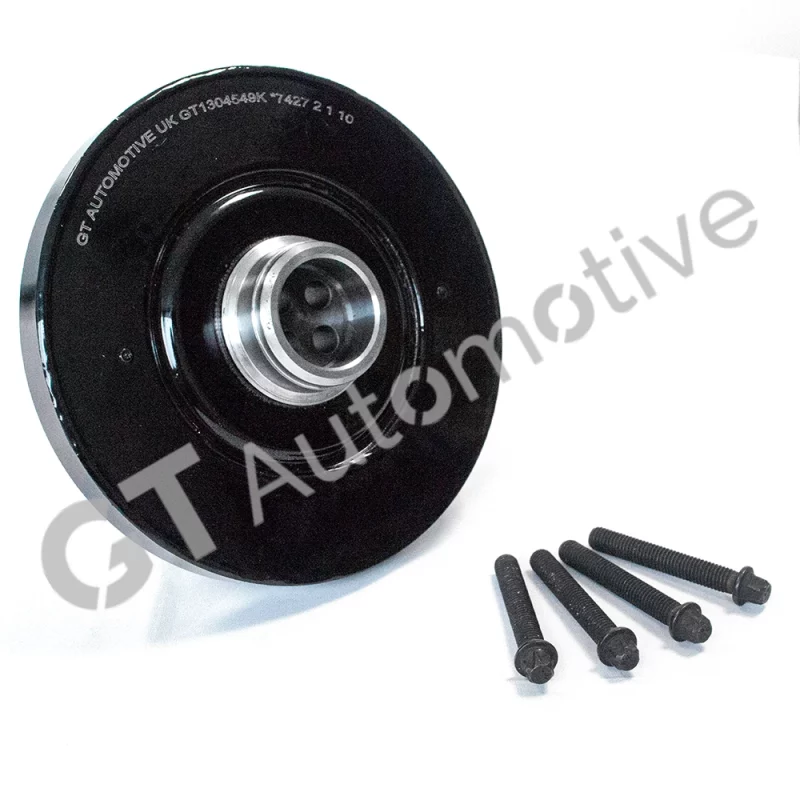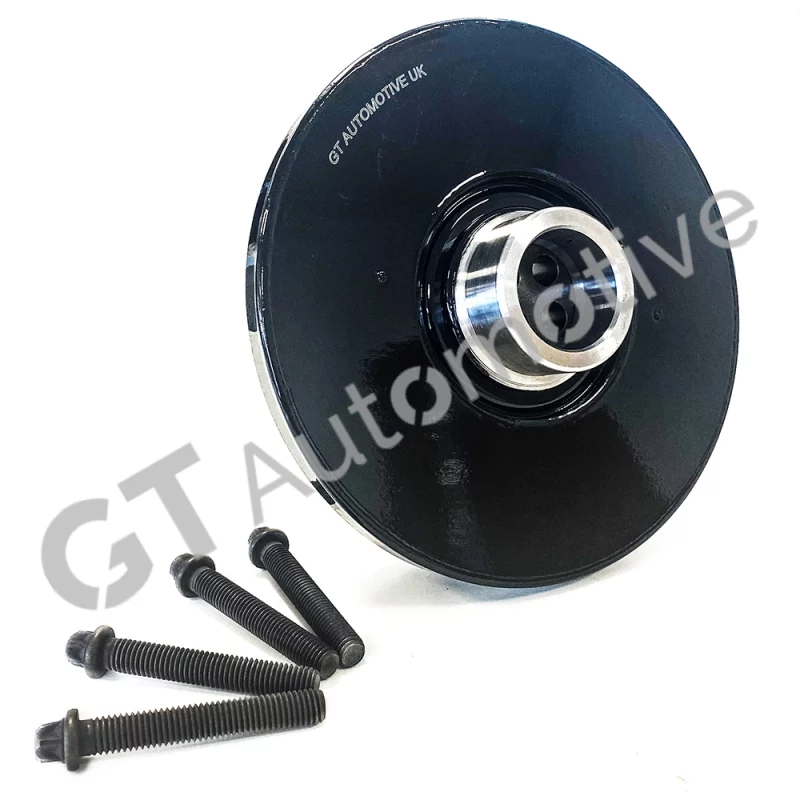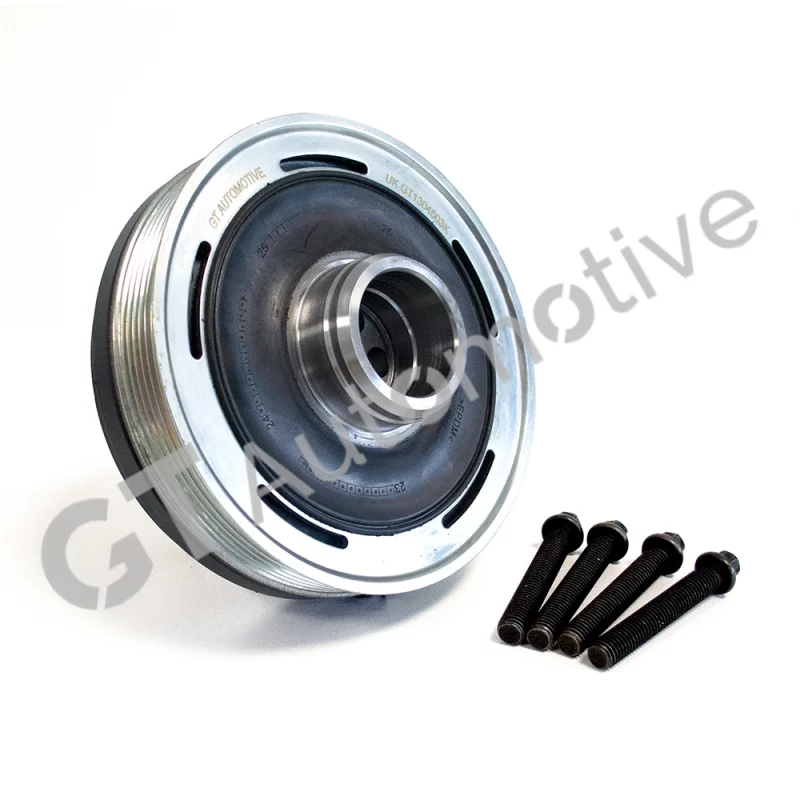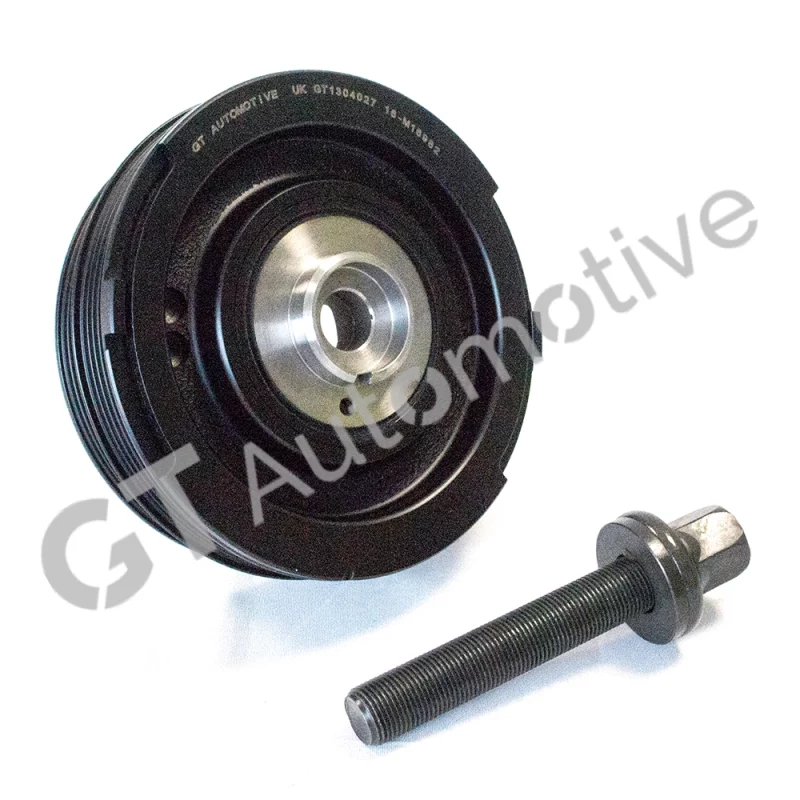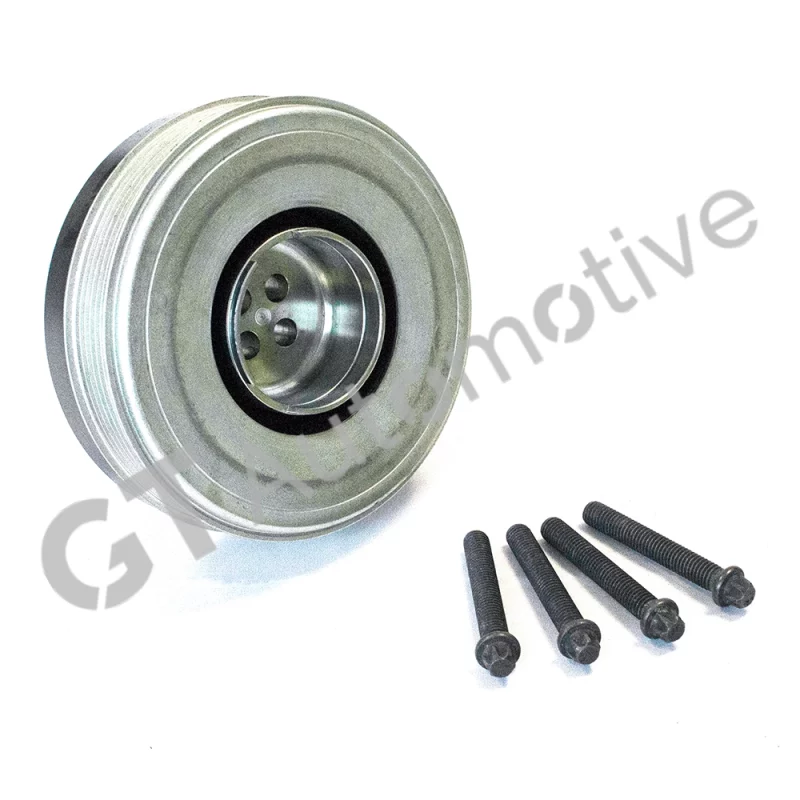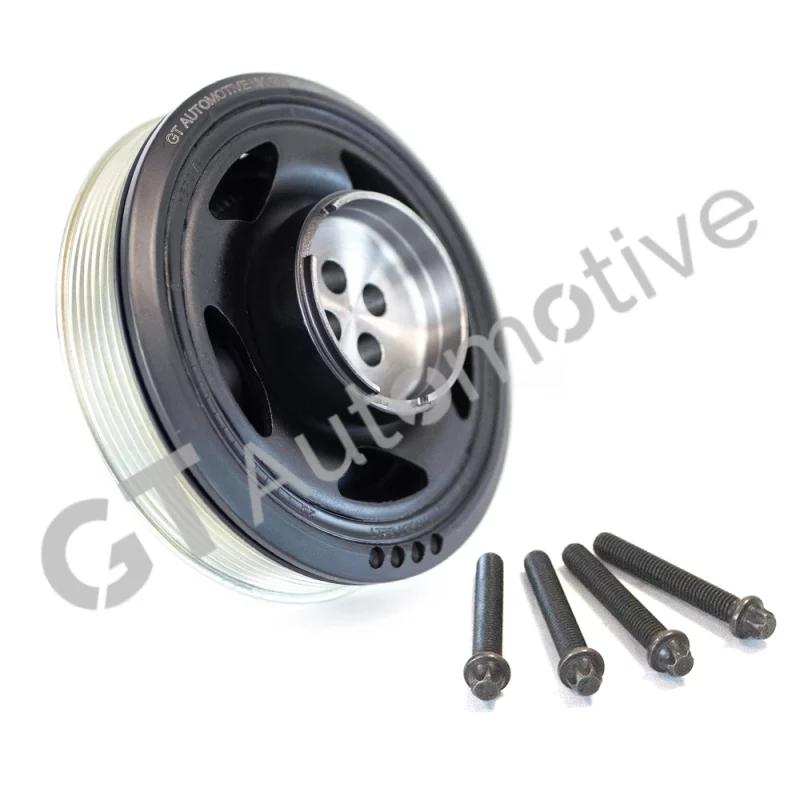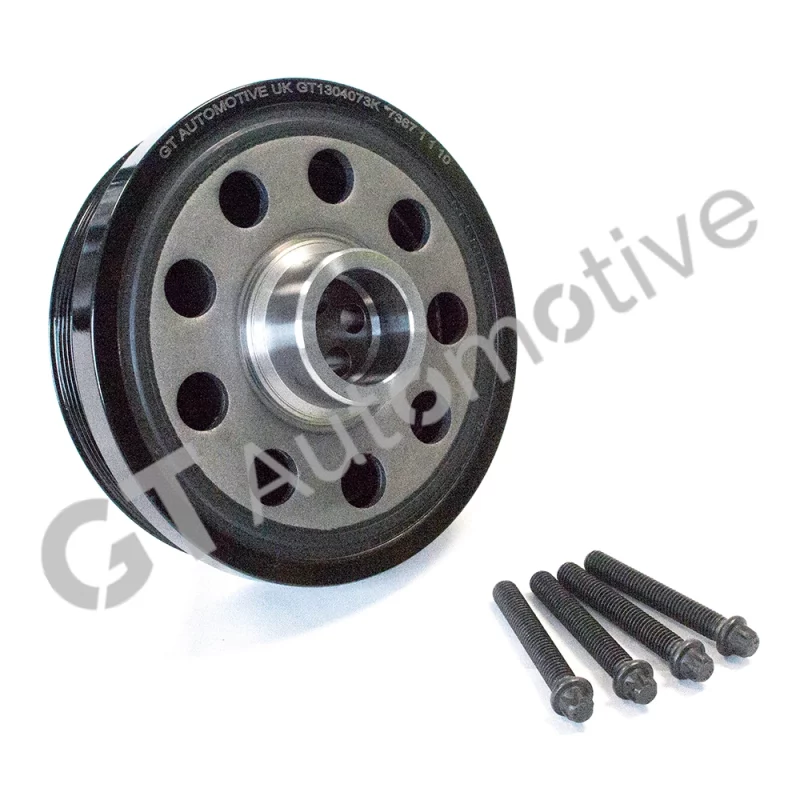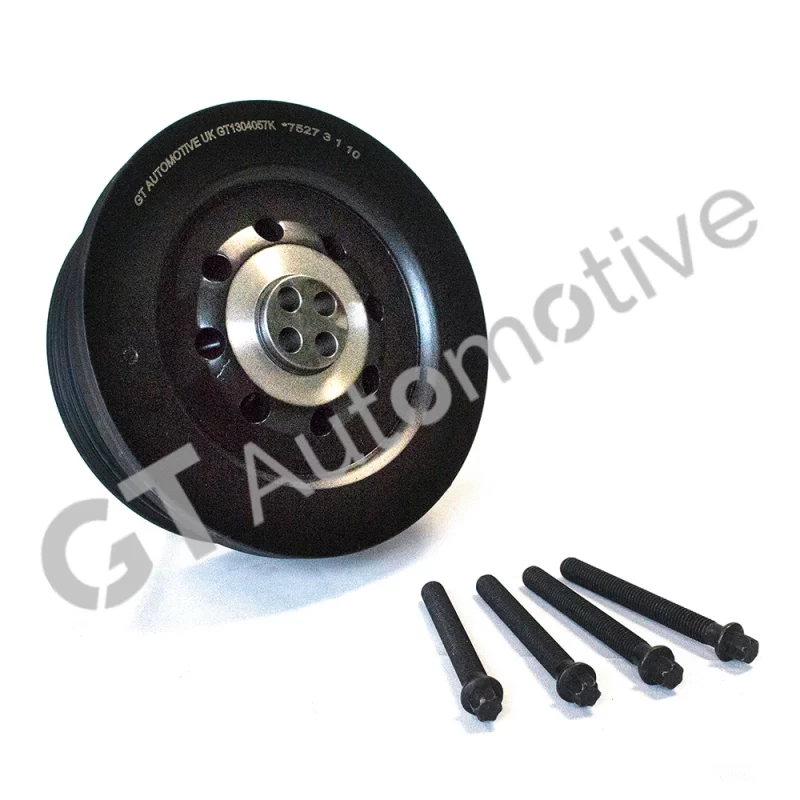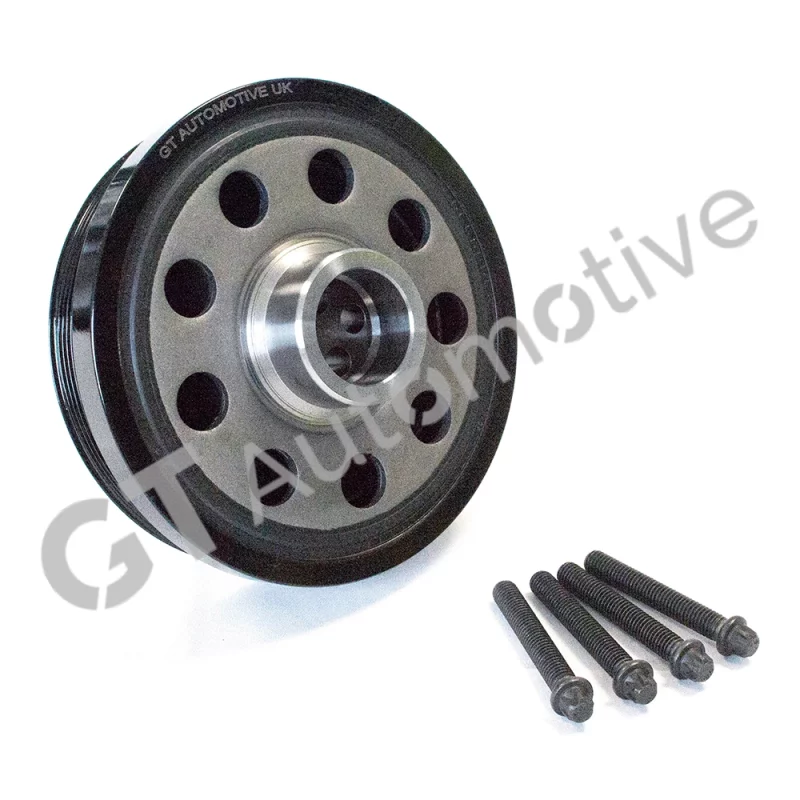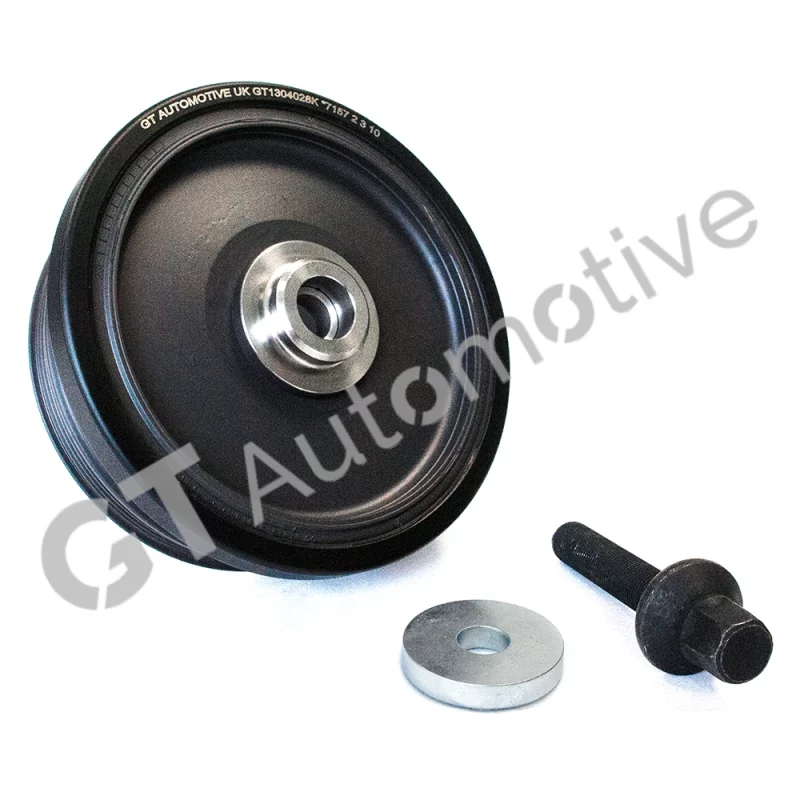BMW as a Whole
BMW has been around for over 100 years and is one of the biggest names in the automotive industry. They offer a wide range with a focus on comfort and performance and are often viewed as luxury vehicles.
At GT Automotive, we see constant demand for BMW crankshaft pulleys. This article takes a closer look at the reliability issues behind that demand and what’s driving ongoing replacements.
What Engines do BMW Use?
BMW have a huge portfolio of engines behind them. Boasting 55 Petrol and 11 Diesel engines, your second hand BMW can have any engine from their huge list. You can view a full list of BMW engines here.
The main engines which we will focus on are the N47, N57 and B47. Regarded as some of the most problematic BMW engines, the N47 and N57 faced massive issues with the timing chain in particular. The B47 was introduced to replace the N47 but was found to face the same issues with the chain.
The N47 was in circulation during 2007-2014 and could be found in the following applications:

The N57 was around from 2008-2020 and could be found in the following applications:

Crankshaft Pulley Failures
BMW crankshaft pulleys are constructed in a 3 piece design with a rubber insert in the middle. This is fairly normal for a crankshaft pulley, as the rubber acts to dampen any vibrations, however there is common fault in BMW applications where the rubber fails and the pulley splits into separate pieces.

It’s not unnatural for a rubber part to fail in this way. When rubber is exposed to extreme temperature conditions or any form moisture it will compromise the integrity of the material and it will begin to dry and crack. This is why it’s important to have regular checks on these kind of components.
With that in mind there is a particular trend with these crankshaft pulleys prematurely failing due to the rubber. There are many factors which can contribute to this statistic, however it’s unclear as to why these affect the BMW crankshaft pulleys more than others.
This pulley is responsible for powering the alternator and water pump. If this part fails the driver may see warning lights indicating their battery is not charging or their engine is overheating.
GT Automotive Crankshaft Pulleys
At GT Automotive we stock a range of TVDs specially designed for BMW applications to exceed OE quality. We work closely with our factory to ensure that we deliver only the highest quality parts to the aftermarket.
View the range of BMW Crankshaft Pulleys here
Learn more about GT Automotive market leading Crankshaft Pulleys
The full range of BMW Crankshaft Pulleys available from GT Automotive

